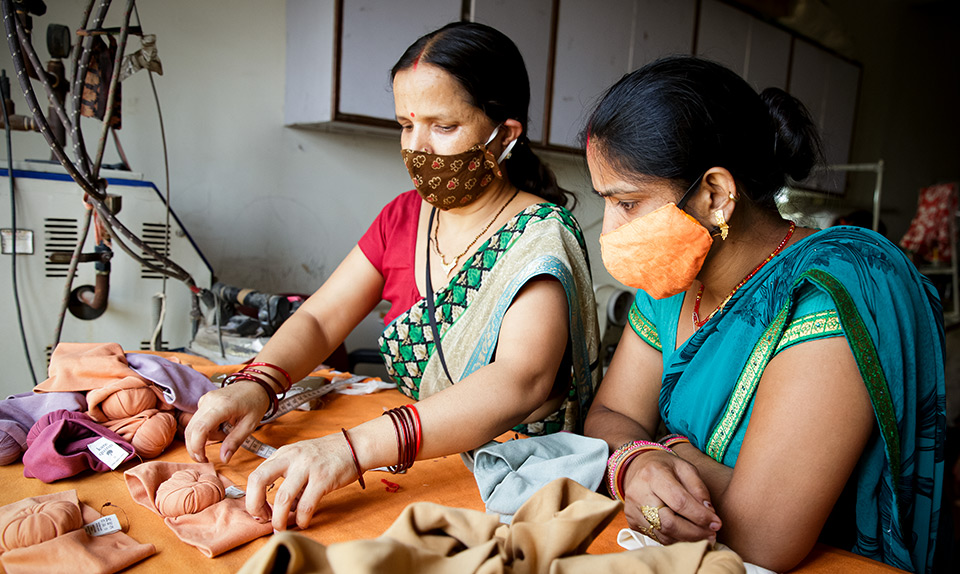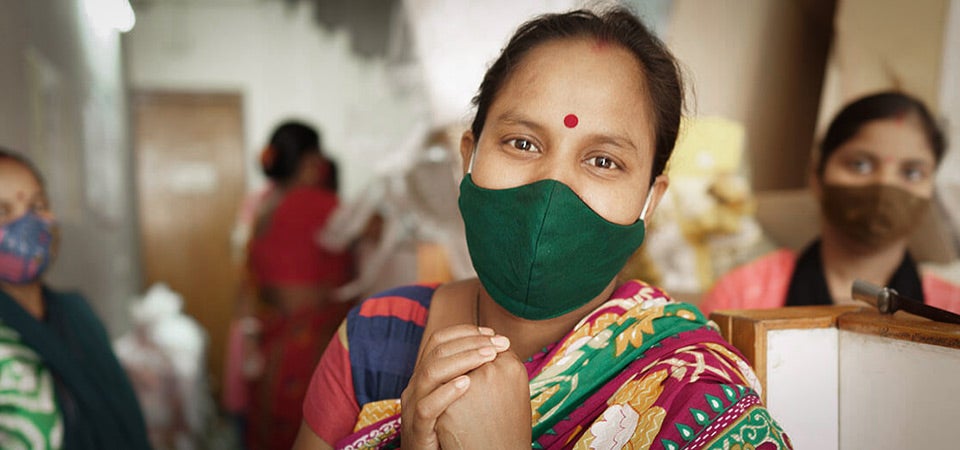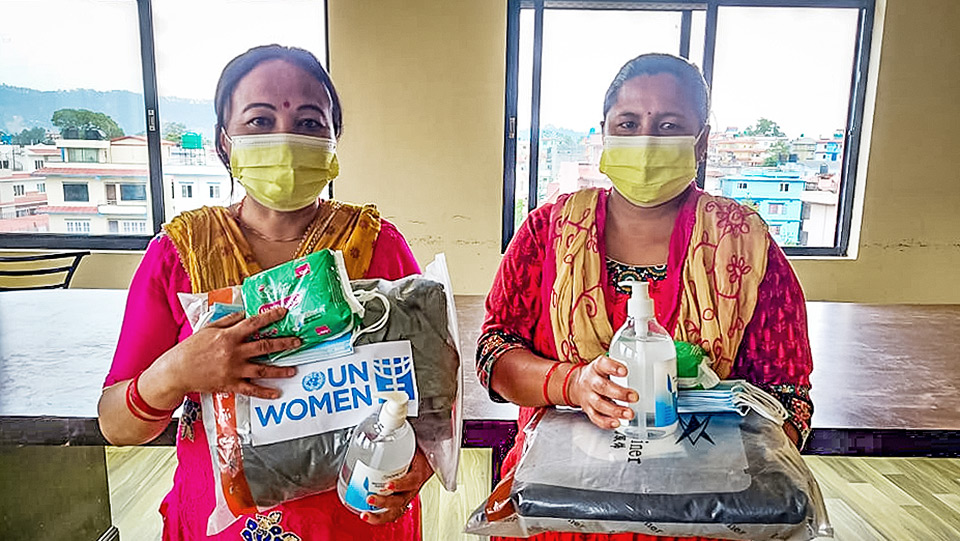On the ground in South Asia, UN Women ensures women gain protection, services and hope for recovery from the COVID-19 pandemic
Date:
Authors: Gizem Yarbil Gurol, Gretchen Luchsinger



A new wave of COVID-19 cases has severely strained health systems and communities across South Asia. Women play indispensable roles in the response but also face dire consequences. They have lost more jobs than men, struggle with care work burdens, and confront increased gender-based violence.


As South Asia confronts the second wave of COVID-19 and infectious variants, UN Women and its partners are providing critical support to women and their families.
From supplying food and hygiene products, to training health workers and nurses in COVID-safe protocols, providing personal protective equipment to front-line responders, protecting women’s livelihoods and sustaining shelter and essential services for survivors of violence, UN Women is channeling its funds, programmes and expertise to support women’s organizations on the ground. We are also working with national and state governments in India and Nepal to promote gender-responsive policies that support women’s recovery from the crisis.
India: A rapid response builds skills and awareness
Across 12 districts in the states of Rajasthan, Bihar, Maharashtra and Odisha, UN Women has provided medical kits for COVID-19 patients quarantined at home, and distributed oximeters and personal protective equipment to local women health workers, while also teaching them COVID-safe protocols so that they are able to sustain their services and learn new skills. UN Women-supported programmes also trained 161 police officers to respond to the specific needs of women and girls during the pandemic, as cases of gender-based violence spiked throughout the region and globally.
In Delhi, one of the worst affected areas of the country, UN Women partners with the Department of Women and Child Development to coordinate four task teams, on child rights, women's rights, social security and health, involving 22 civil society and women’s groups. Members share resources and information, jointly advocate and drive information campaigns about COVID-19 prevention, vaccination and more. One result has been the designation of 100 Crisis Intervention Centres across Delhi for children orphaned due to COVID-19.
In Delhi, Madhya Pradesh and Rajasthan, UN Women is building capacities among over 2,000 front-line officials responding to gender-based violence, including in one-stop centres, shelters, helplines and health-care services. These efforts are expected to reach 4,000 law enforcement agents, such as prosecutors and legal aid providers, to accelerate access to justice and strengthen responses to survivors of violence. UN Women will also collaborate with 100,000 Women Self Help Groups to train them on sexual and gender-based violence, with potential outreach to 1 million women.
With the World Health Organization, UN Women rolled out “RESPECT Women: Preventing Violence against Women”, a package of materials to support governments, civil society organizations and UN entities. High-level government officials from union and select state governments have taken a 10-week online programme using the package.
To support medium and long-term recovery from the crisis, UN Women is expanding educational opportunities for women and girls through its Second Chance Education programme. The programme, which has already served over 50,000 women by enabling them to re-enter formal education, learn vocational skills and find employment and entrepreneurial pathways, adapted to provide education and training digitally during lockdowns, employed and strengthened the skills of community workers and educators to sustain these services.
Through its information campaigns and youth volunteer initiative in India, UN Women is also supporting vaccine awareness and providing verified information on COVID-19 prevention and care through social media, reaching more than one million people during the second wave.
Nepal: Putting essential supplies in women’s hands

UN Women’s ongoing COVID-19 response in Nepal entails providing immediate relief packages that include cash and in-kind support to women from excluded and marginalized groups, as well as food, clean energy, essential supplies, information, health care, and financial and digital services.
As women working in low-paying and informal jobs were affected worse by the economic fallout of the pandemic, UN Women also helped women home-based workers to produce and distribute protective supplies, such as soaps, sanitizers, and face masks. Six women-managed community kitchens in three provinces provided 95,000 nutritious meals and baby food to 30,000 people from marginalized groups, while women who managed the cooking and distribution of food earned income and gained visibility and trust in their communities.
UN Women has also channeled funds for mental health services, access to information, skills training for women workers and entrepreneurs, working with women’s organizations and youth groups. Around 8.2 million people nationwide were able to tune into 506 radio stations to receive timely and verified information about available services on gender-based violence, mental health and the need to share unpaid care work. Legal counselling has assisted at least 345 survivors of gender-based violence.
As part of its humanitarian work with the United Nations, government and other development partners in Nepal, UN Women also developed tools to guide gender-friendly quarantine centres and integrated gender equality and social inclusion standards in the national COVID-19 Response Plan and Monsoon Preparedness and Response Plan.
